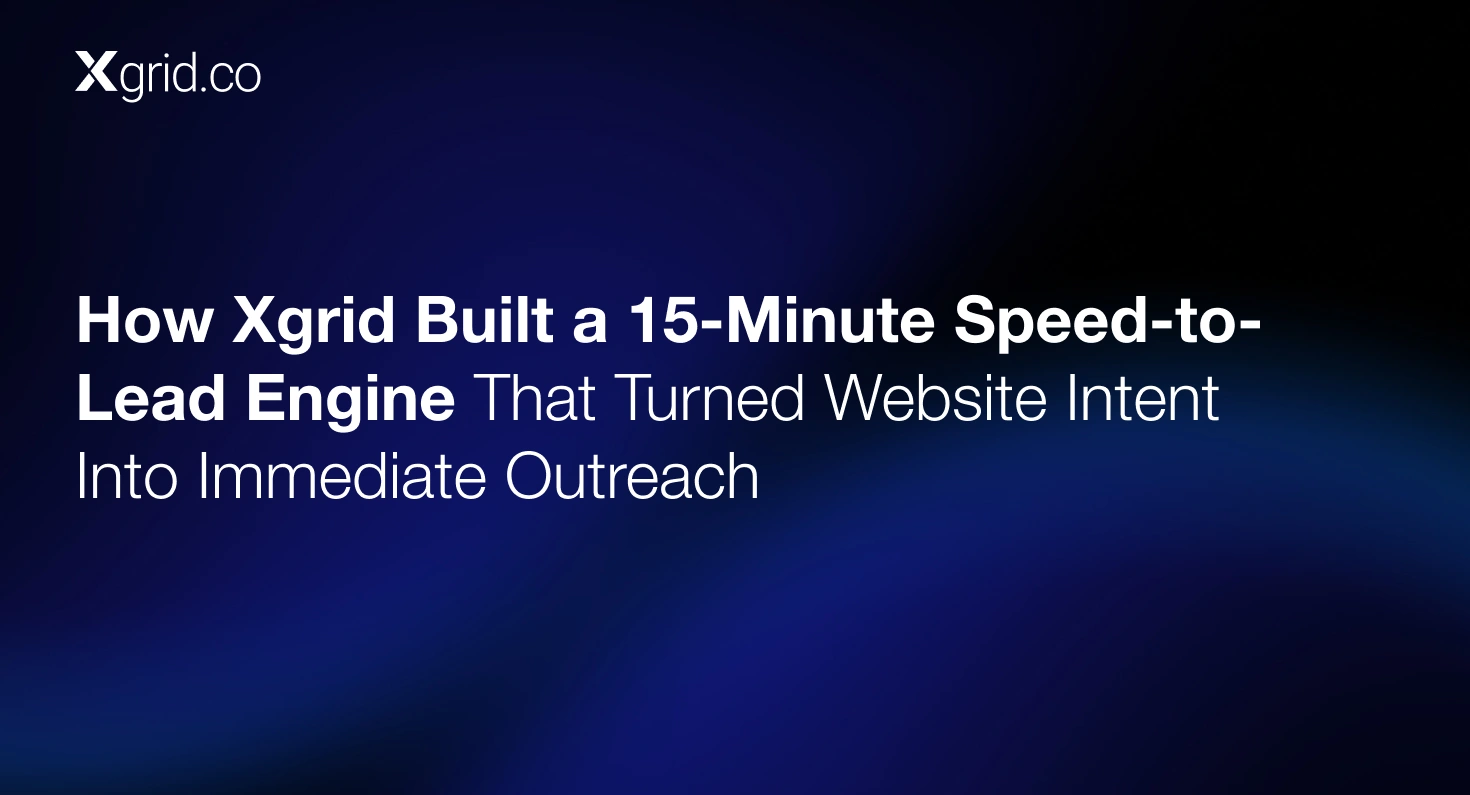Turning Webinars Into a Growth Machine in HubSpot: 70% Faster Setup, 100% Sync Accuracy
Background: Too Many Webinars, Too Much Manual Work
A growing B2B marketing team was hosting frequent webinars to showcase products, onboard partners, and drive thought leadership — but every event felt like reinventing the wheel. From registration to follow-ups, the team was copying workflows, building custom lists, and scrambling to align systems manually.
The Problem: Fragmented Workflows, Missed Opportunities
Webinar execution was inconsistent and unsustainable. The key issues included:
- Every new event required manual setup of HubSpot workflows, email sequences, lists, and Salesforce campaigns
- No standardized templates for registration, attendance tracking, or post-event follow-up
- Naming inconsistencies caused confusion and made it harder to report across campaigns
- Zoom, HubSpot, and Salesforce weren’t reliably synced — leading to misaligned attendee statuses
These inefficiencies slowed down go-to-market speed, created reporting gaps, and limited post-event impact.
Our Solution: A Modular Webinar Engine in HubSpot
Xgrid built a centralized, scalable webinar framework inside HubSpot that eliminated the need for manual setup and aligned data flows between Zoom, Salesforce, and marketing operations.
What We Built
A Single, Smart Webinar Template
- Designed a universal HubSpot “Webinar Management” workflow that handled the full journey: registration, reminders, follow-up, and CRM sync
- Used tokens and dynamic fields so marketers could customize content without altering the structure
- Enabled true “clone and go” flexibility for any future webinar
Salesforce Campaign Integration That Just Works
- Connected each workflow to a corresponding Salesforce campaign
- Automated campaign member status progression: Invited → Registered → Attended → No Show
- Maintained clean mapping across events for easier attribution and reporting
Zoom Integration That Doesn’t Break
- Audited and corrected the Zoom-HubSpot sync using the Marketing Events object
- Created conditional logic to support both Zoom Webinars and Zoom Events (which had sync limitations)
- Ensured registration and attendance data flowed directly into HubSpot contact records
Follow-Up Automation that Personalizes at Scale
- Used branching logic to send follow-ups tailored to attendee status
- Included recording links, feedback surveys, and smart CTAs
- Triggered sales alerts based on lead engagement scores from post-event interaction
Results: A Webinar Machine That Saves Time and Drives Engagement
✅ Reduced webinar campaign setup time by 70%
✅ Achieved 100% sync accuracy between Zoom, HubSpot, and Salesforce
✅ Boosted attendance tracking accuracy and improved post-event follow-up engagement
✅ Created a repeatable framework that significantly accelerated go-to-market timelines
Key Takeaways: Why HubSpot Workflows Are the Backbone of Scalable Webinars
- A modular workflow makes webinar execution faster, more consistent, and less error-prone
- Salesforce integration ensures post-event engagement is visible to sales — without any manual handoffs
- Automation enables your team to scale events while keeping ops lean
Best Practices to Replicate This Success
- Maintain one master webinar template in HubSpot — clone, don’t build from scratch
- Segment follow-up emails based on attendance and engagement to drive more conversions
Want a webinar system that runs itself? Check out our HubSpot Consulting Services to simplify automation, integrations, and follow-ups.



